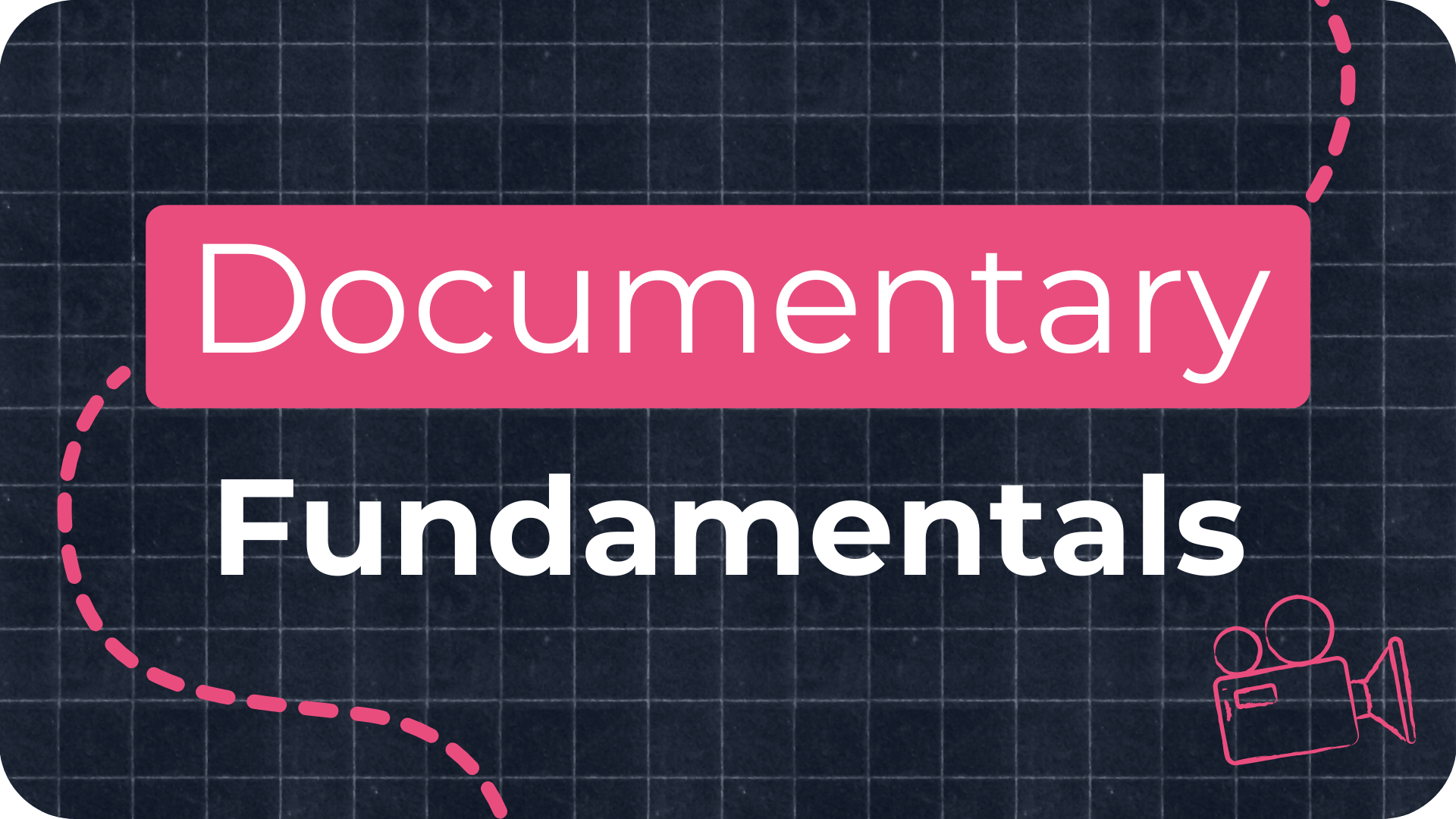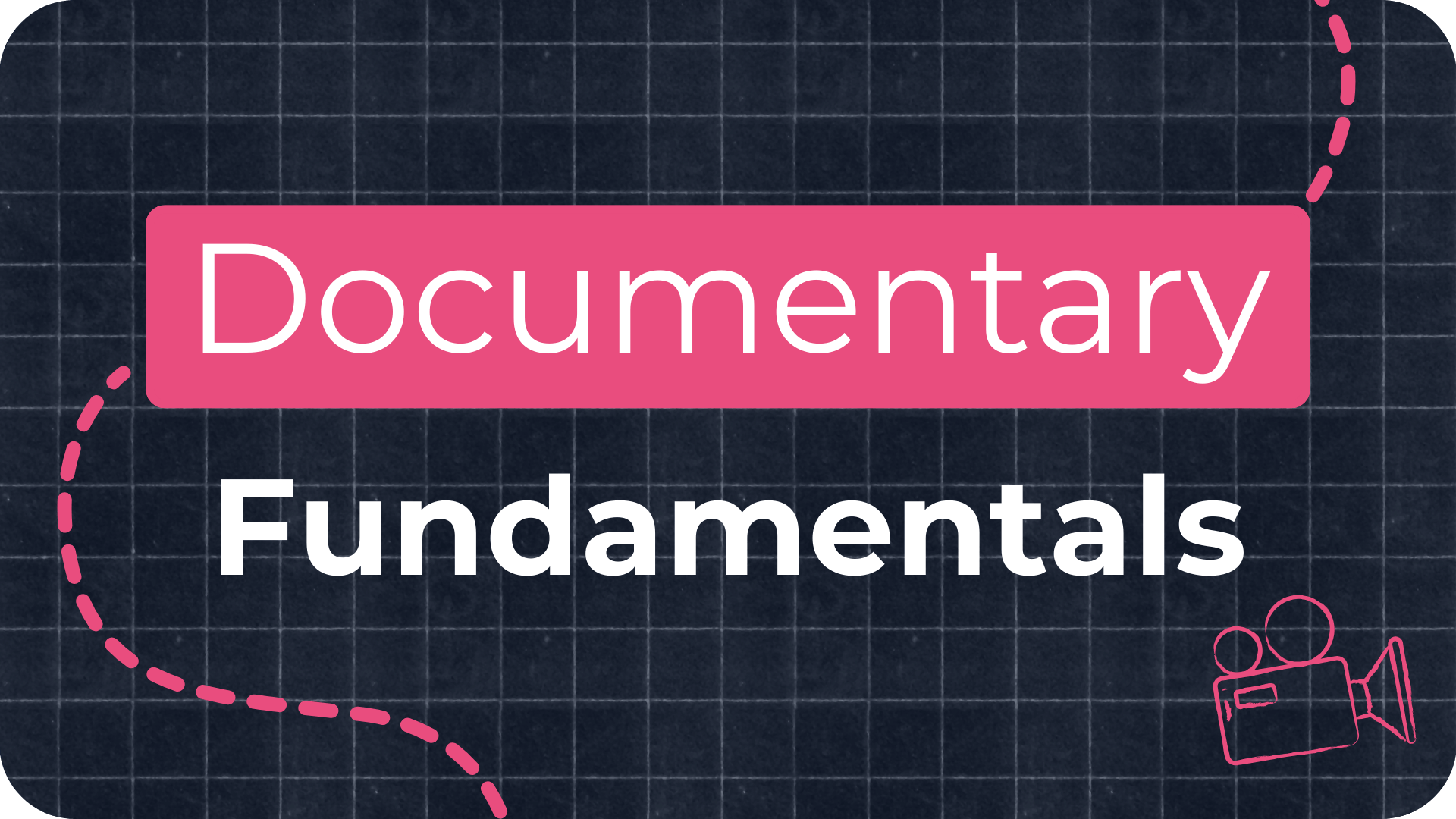How to Become a Documentary Filmmaker (Without Film School)

Are you passionate about becoming a documentary filmmaker but worried you can't afford film school? Film school can be an incredible experience, but let’s be honest—it’s incredibly expensive and often out of reach for many aspiring filmmakers. Even if you manage to cover the tuition fees, there’s no guarantee you'll get work afterwards. Film schools typically focus on teaching filmmaking skills but rarely cover the business skills you need—like finding work, building a network, or marketing yourself—in an industry that’s rapidly changing.
I applied to the National Film and Television School (NFTS)—one of the most prestigious film schools in the UK—when I was 19. I didn't get in. At the time, it felt like a career-defining failure. Today, I realise that being rejected pushed me towards a learning path that ultimately suited me much better, shaping me into the filmmaker I am today.
If you’re determined to become a documentary filmmaker, I'm proof that you don't need to go to film school and in this blog, I'm going to share the steps that helped me develop my filmmaking skills, build a successful career as a documentary filmmaker, and make films that I’m genuinely proud of.

1. Learn Documentary Filmmaking by Doing: Start Small
If you’re wondering how to become a filmmaker without going to film school, here’s what worked for me:
Use What You Have
You don’t need an expensive camera or fancy gear to start filmmaking. When I first started, I used whatever equipment I could get my hands on— for me it was my family's Handycam. The key is capturing a great story, not using the best camera.
Make Short Projects
Start with short films. Small projects, even those just a minute or two long, allow you to practice storytelling without the burden of a massive production.
Don’t Aim for Perfection
It’s tempting to get caught up in making everything perfect, but perfectionism can be paralysing. Many of my early projects were far from polished. However, each one taught me something valuable, whether it was about how to light a scene, how to record great-sounding audio, or how to tell a compelling story.

2. Master Storytelling Over Equipment
Find Real Stories Around You
You don't need to travel far to find incredible stories. Look around you—family, friends, or your community. Everyone has an interesting story to tell, and your job is to bring those stories to life.
Learn to Ask the Right Questions
Filmmaking is about curiosity. Develop the skill of asking deep, thoughtful questions that can lead to a captivating narrative. Being genuinely interested in your subject often results in the most authentic stories.

3. Immerse Yourself in the Filmmaking World
I’ve been making films for over 20 years—since I was 9 years old. Back then, and even when I applied to film school at 19, the resources for learning filmmaking online were extremely limited. YouTube was in its infancy, and there weren't structured online courses like the ones we have today. This was one of the reasons I later created the Documentary Film Academy—to provide the kind of guidance I wish I'd had.
Work on Other People's Projects
After being rejected from film school, I took every opportunity I could to work on other people's projects. No role was too small. Whether as a production assistant, sound recordist, or grip, I learned something new on every set. This hands-on experience was my "film school."
Wear Many Hats
Taking on different roles gave me an invaluable understanding of the filmmaking process from different perspectives. Knowing how each department works gave me insights that made me a better director, producer, and collaborator.
Make Your Own Films
When there were not other films to work on, I made developed my own. Each project was a chance to learn, experiment, and improve my filmmaking skills. Consistently creating my own films allowed me to refine my skills and develop my voice as a filmmaker.

4. Build Your Filmmaking Network
A crucial part of becoming a successful documentary filmmaker is having the right connections. Film school can be great for networking, but you can build your own community outside of school too.
Join Local Film Groups
Look for local film meetups or groups where you can meet like-minded individuals. Not only can you learn from others, but collaboration opportunities will also start opening up.
Participate in Online Communities
Join filmmaker groups on social media platforms like Reddit or Facebook. Participate actively—ask questions, offer your knowledge, and share your work. This kind of involvement will help you find mentors, collaborators, and supporters early on.

5. Embrace Failure as Part of Filmmaking
Failure is inevitable, but how you respond to it makes all the difference. Learning to embrace failure has been one of the most powerful lessons of my filmmaking journey so far.
Embrace Constructive Feedback
When a project is rejected or criticised, instead of thinking you're a failure, use it as a learning experience. It’s tempting to take it personally, but the best way to grow is to learn from the critiques you receive and apply that knowledge to your next project (yes, I agree, it's easy to say, and hard to do).
Finish What You Start
In my early years, I would often abandon projects if they didn’t meet my expectations. But one of the biggest lessons I learned is the value of completing a project—even if it’s not perfect (which usually they aren't, especially if you're just getting started in filmmaking). Finishing helps you build resilience, teaches you problem-solving skills, and gives you the momentum needed for your next project.

6. Commit to a Filmmaking Lifestyle
Becoming a filmmaker is about more than just making films—it’s about resilience and commitment. You will face challenges, rejections, and technical problems, but each project you complete is a step toward building a successful filmmaking career.

You Can Become a Documentary Filmmaker Without Film School
You don’t need film school to become a documentary filmmaker. What you need is the courage to start, resilience to keep going, and the ability to learn from every failure. Being rejected by the National Film and Television School was a significant moment in my journey, but it didn’t define me—it redirected me towards the path that was right for me.
If you're ready to start your documentary filmmaking journey, you don't have to do it alone. The Documentary Film Academy is a supportive community of filmmakers sharing skills, advice, and encouragement through every step of the process. We're here to help.
Grab your camera—whatever it may be—and start capturing stories. The world is waiting for you to share them.
















